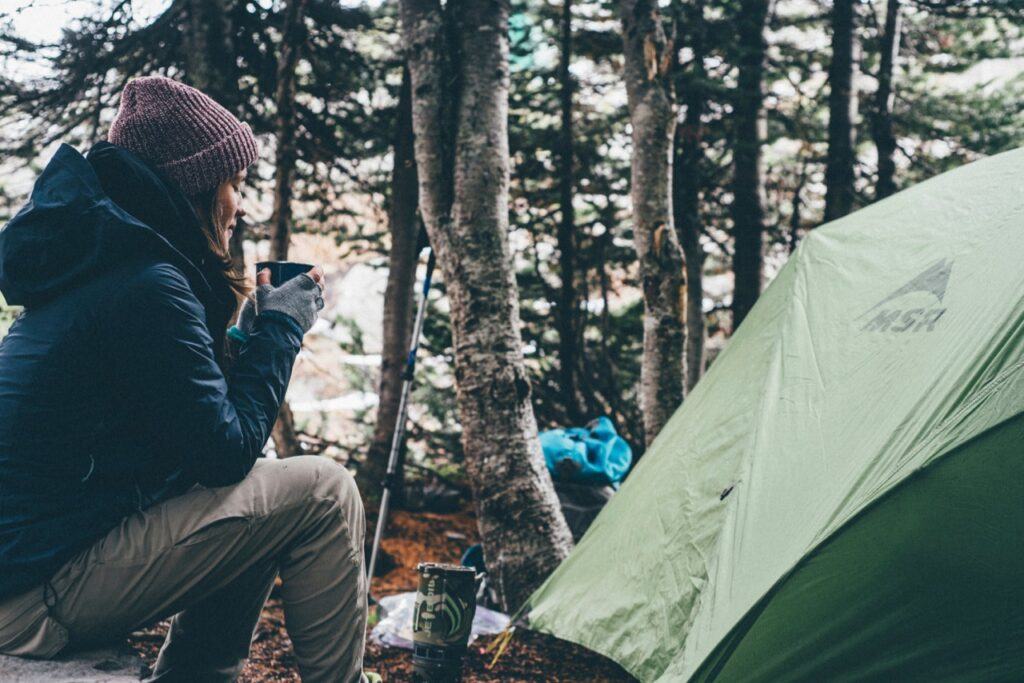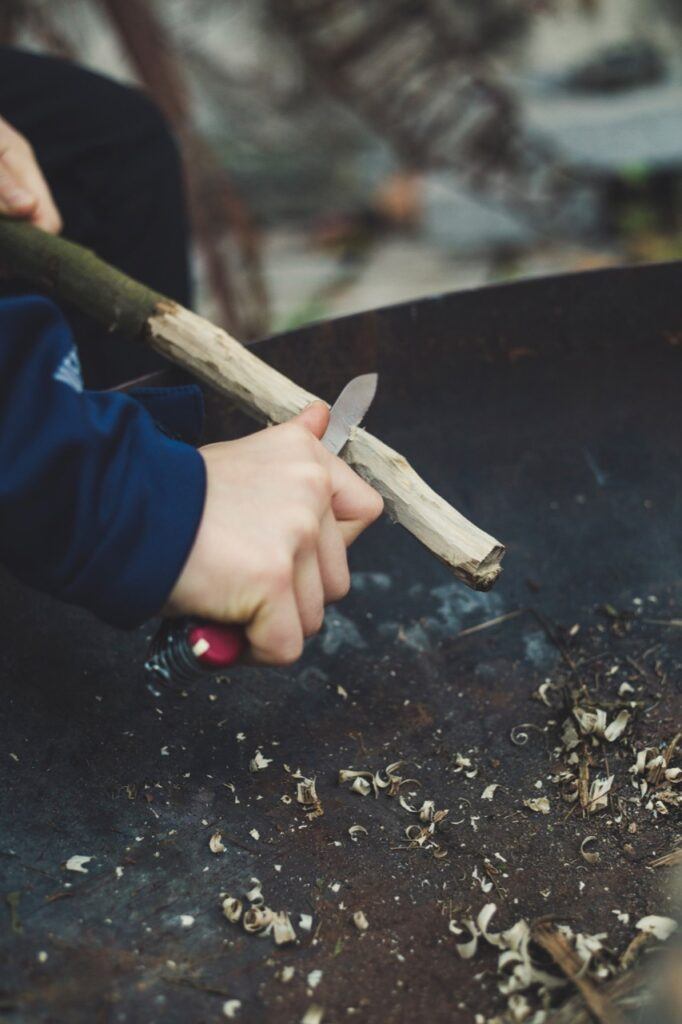How to Prepare for a Wild Camping Adventure


Wild Camping Adventures: What to know before you go
If you’re looking to experience more of the outdoors or simply escape your routine, then wild camping can be the perfect antidote. A lack of people, facilities and distractions make it one of the most exciting ways to connect with nature and have yourself a cheap and cheerful adventure.
I embarked on my first wild camping trip three years ago, having made the decision the night before to head out on a 5-day hike, completely off-grid in the mountains of Georgia. I set off with a friend and experienced what was one of the craziest adventures of my life. I loved every mad and anxiety-inducing second of it and I implore you to give it a go at least once.
If you want to learn from my mistakes and remove some of the risk then a little bit of planning goes a long way. Here’s my top tips for a successful first wild camp –
1) Know the law

Photo credit: Nikki Trailor
Every country has its own rules when it comes to wild camping and it pays to be aware. If you promise to be respectful and leave no trace, then many places tolerate wild camping from dusk ‘til dawn but in others, it is firmly illegal. Check before you go and, if you’re still unsure, you can always sweet talk some locals into pointing out a great spot or giving up a corner of their land.
Please be polite and always ask first! Respecting the rules means that the rest of us can keep wild camping too – thanks in advance.
2) Have a rough plan (even if you’re not a planner, trust me)

Photo credit: Julian Bialowas/ Unsplash
As a serial non-planner, I would never advise organising every last detail but, at the very least, make sure you know if you’ll have access to food and water or whether you need to carry supplies with you.
If you need to carry supplies, knowing how long you plan to be out in the wild for will help you to prepare. And always throw in a bit extra, just in case..
Other important things to think about are the weather. Make sure that you have plenty of warm gear if you’re going to need it and avoid carrying too much weight if you’re going to be somewhere hot to save on energy.
Have you ever slept in a tent at altitude with a terrible sleeping bag? Yeah, not recommended.
3) Start small
Being completely out in the wild can leave you exposed to a lot of risks you may not have experienced before, even if you’re a regular camper – think wildlife, strange characters and complete seclusion from facilities (more on these later).
Just because you’ve enjoyed camping in your garden or on a regular campsite, there’s no guarantee that you’ll love wild camping. I definitely recommend trying it in your garden first and then venturing out somewhere local or close to civilisation.
4) Try it before spending a fortune on new kit
If you don’t already have your own gear, borrow it from a friend or rent it from a camping outfitter. There are a million Facebook groups for wild camping which will make you feel you need the lightest tent or the fastest stove but it all comes with a price – make sure you’re ready and going to get your money’s worth before committing.
I really recommend joining these groups for advice on gear and how to prep if you try it and decide you’re keen.
5) Test your navigation skills

Photo credit: Denise Jans/ Unsplash
If you’re genuinely going off-the-beaten-path then a map and compass are a must. You can download some great maps to your phone but wild camping means no charge points and potentially no GPS signal, making it tricky and sometimes dangerous if you get lost. If you’re relying on your phone, make sure you carry extra batteries or portable chargers just in case – I rate solar-powered chargers which you can hang off your pack while you walk.
If you’re clueless about how to navigate or think you know what you’re doing but haven’t tried it in years (yo), check out navigation courses before you go, or look for a YouTube tutorial and try it out in your local park.
6) Brush up on the local wildlife

Photo credit: Becca/ Unsplash
This is something I only ever considered when camping in bear territory but it turns out you can come across a whole host of creatures when camping in the wild. And if you’ve ever camped before, you’ll know how loud everything sounds from inside a tent! It’s often nothing to worry about but being aware of the possibilities makes it easier to know when to roll over and go back to sleep and when to get out and intervene.
Wildlife encounters are rare in some places but there have been nights where I’ve been woken up by a complete menagerie, from a horse chewing grass outside my tent, to horses fighting and charging up and down a glade next to me, to a pack of angry wild dogs surrounding me (not my best night’s sleep).
As well as larger mammals, there’s also snakes, scorpions and creepy crawlies to be aware of, depending on your destination.
Being aware helps you not to panic – most wildlife encounters are best dealt with calmly. If you’re going somewhere where there are likely to be predators then know how to handle it if they wander into your camp; think about where you store your food and shoes and keep a torch nearby.
On occasion, I have kept a pile of stones by the door of the tent to ward off angry dogs in the night. Do what you need to make yourself feel comfortable and don’t feel stupid if you take extreme measures.
7) Be prepared for any eventuality

Photo credit: Markus Spiske/ Unsplash
OK, this may sound sinister – but if you’re going to invest in anything, make it a good penknife. The very nature of being out in the wild means that things can go wrong and a good penknife can sort you out in all manner of predicaments. You’ll need it for cooking first and foremost but they are a godsend for mending broken kit too.
And following on from the previous point, it’s good for peace of mind if you’re likely to encounter any aggressive wildlife (or people.. I’ve met some weirdos).
8) And finally, know that it’s OK to fail
Try and embrace the adventures you’re likely to have along the way. But if you know you’re really not enjoying yourself then there’s no harm in being prepped with an escape route, unless you want to risk sleepless nights, running out of supplies or getting totally lost. Whatever happens, know that nobody is judging and you’ll no doubt come away with some great stories to share in the pub later.
As someone who has flouted almost every one of these fundamentals, I hope that this list inspires you to to learn from my (many) mistakes and have a damn good time doing so. Read this, use it wisely and make me jealous with your adventures.
Feature image credit: Scott Goodwill/Unsplash
Last updated on Feb 16, 2021Have you subscribed to our Newsletter or Podcast? Listen to us on Apple Podcast and Spotify and follow us on Facebook, Instagram Twitter and YouTube.








